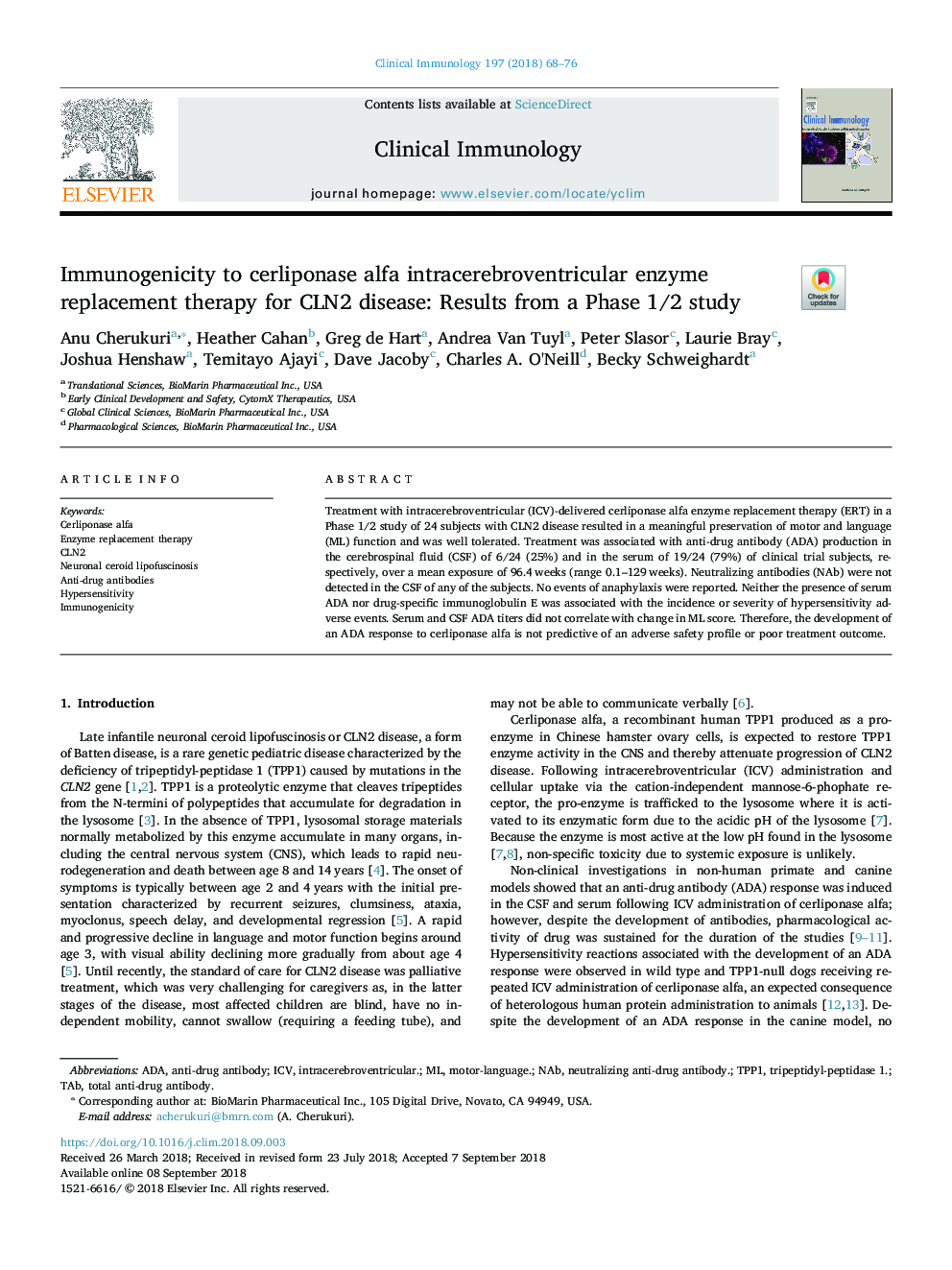| Article ID | Journal | Published Year | Pages | File Type |
|---|---|---|---|---|
| 10148674 | Clinical Immunology | 2018 | 9 Pages |
Abstract
Treatment with intracerebroventricular (ICV)-delivered cerliponase alfa enzyme replacement therapy (ERT) in a Phase 1/2 study of 24 subjects with CLN2 disease resulted in a meaningful preservation of motor and language (ML) function and was well tolerated. Treatment was associated with anti-drug antibody (ADA) production in the cerebrospinal fluid (CSF) of 6/24 (25%) and in the serum of 19/24 (79%) of clinical trial subjects, respectively, over a mean exposure of 96.4â¯weeks (range 0.1-129â¯weeks). Neutralizing antibodies (NAb) were not detected in the CSF of any of the subjects. No events of anaphylaxis were reported. Neither the presence of serum ADA nor drug-specific immunoglobulin E was associated with the incidence or severity of hypersensitivity adverse events. Serum and CSF ADA titers did not correlate with change in ML score. Therefore, the development of an ADA response to cerliponase alfa is not predictive of an adverse safety profile or poor treatment outcome.
Keywords
Related Topics
Life Sciences
Immunology and Microbiology
Immunology
Authors
Anu Cherukuri, Heather Cahan, Greg de Hart, Andrea Van Tuyl, Peter Slasor, Laurie Bray, Joshua Henshaw, Temitayo Ajayi, Dave Jacoby, Charles A. O'Neill, Becky Schweighardt,
